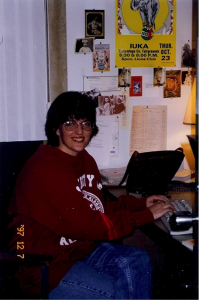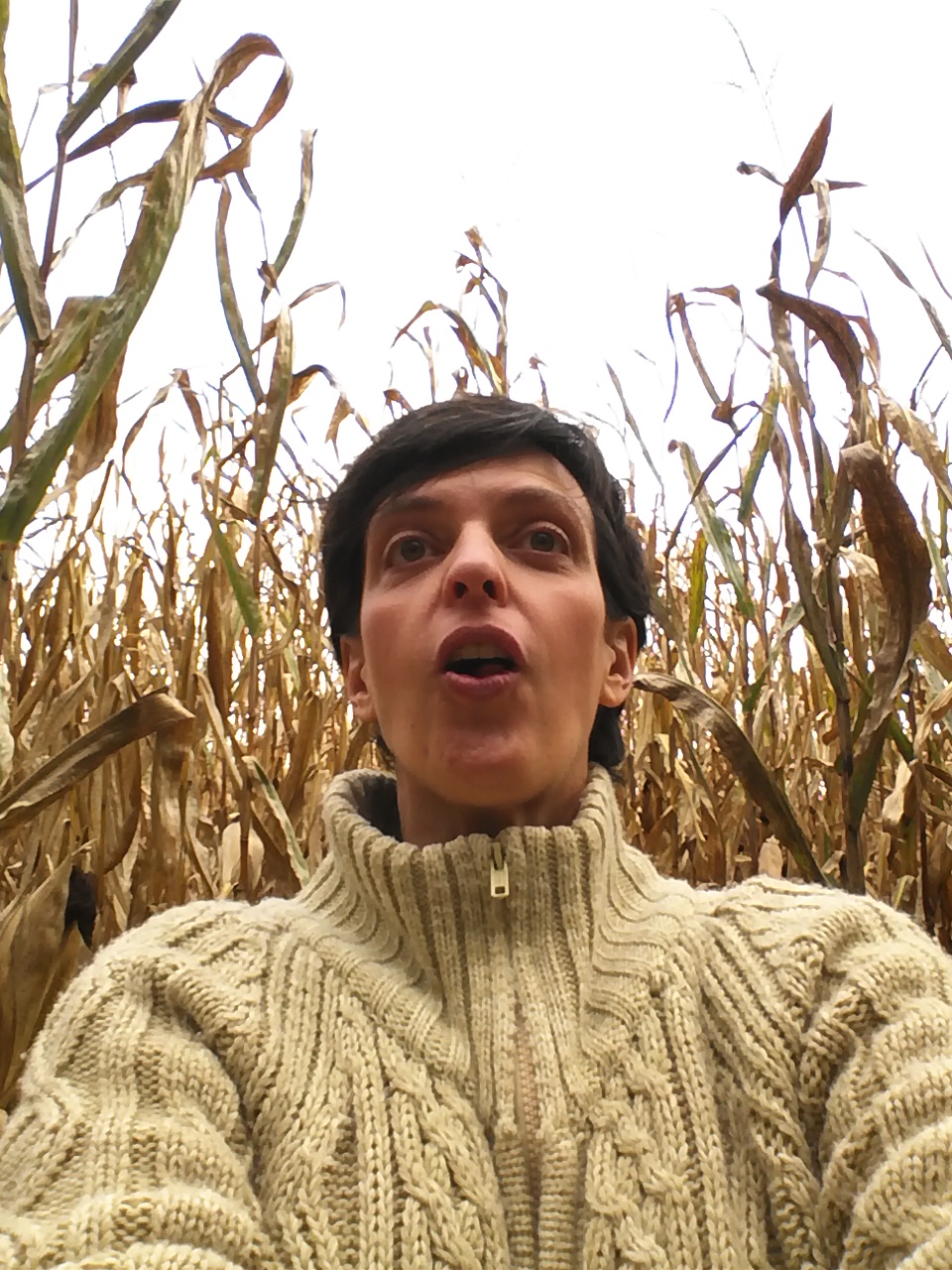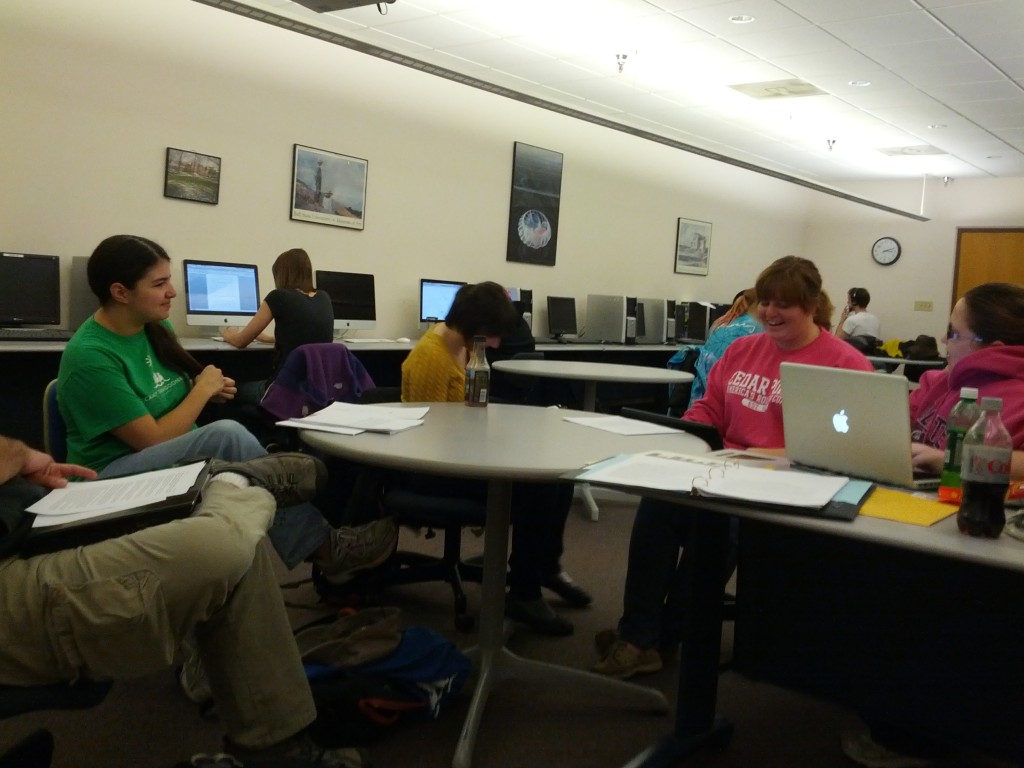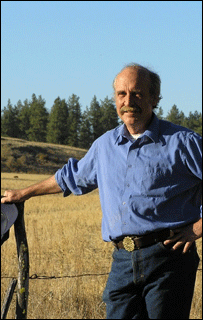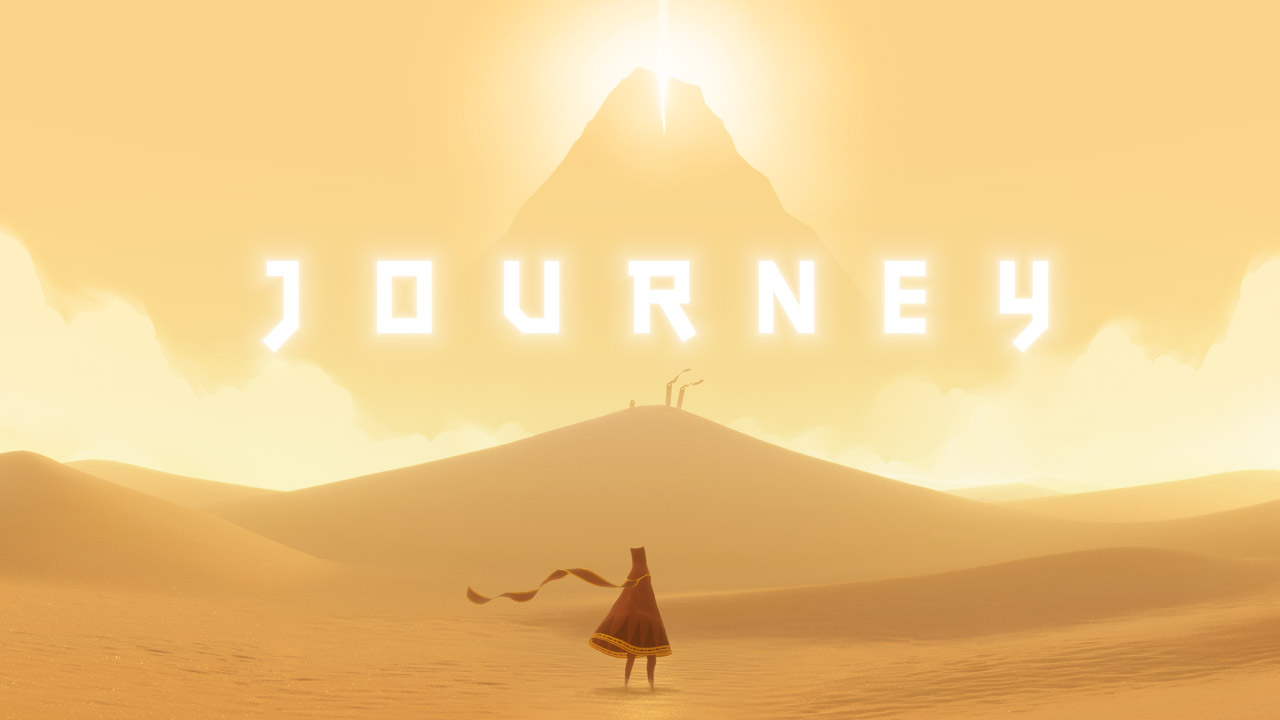Selfies + Accountability
During the summer of 2013, I wanted to keep track of how many days I wrote. Like making a big fat X on a calendar. Except I don’t use a physical calendar anymore.
So I hit the Photo Booth icon on my Mac and took a quick picture, and it was saved by the date. Here’s one from May 17.
It’s how I kept myself accountable all summer. Sometimes I took a picture from the POV of my computer, sometimes from my POV looking at my computer.

I used to use 750words.com a lot. I liked sharing that a writing session had taken place, similar to how I can share an exercise session has taken place on MapMyRun. I liked that all my friends were using 750words. It felt like we were all in it together.
So at the end of the summer, I made a Tumblr that anyone can contribute to. It’s called Every Day I Write the Book.
Perhaps you think sharing info like this is bragging or narcissistic?
Well, screw you. This is for the rest of us.
This isn’t like Selfies at Funerals or Selfies at Serious Places.
This is like, Hey look at all these people who are writing!
Writing Accountability Tools
There are many ways to hold yourself accountable as a writer.
I have many writer friends who post weekly or daily updates on FB about how many words they’ve written. Personally, I like getting this information. It keeps me motivated, and they do it, I imagine, because it makes them accountable.
But yeah, I know, it gets to be too much sometimes.
Selfies
Then there’s the fact that this Tumblr is about WRITING ACCOUNTABILITY and SELFIES. At the same time!
I don’t do selfies much. I have complicated feelings about them.
I like sharing. I like offering support. I like seeing what people are wearing or that they’ve lost weight or that they’re happy or that they’ve developed a six pack or that they like their new haircut. Yay!
But yeah, I know it on the other hand, it all feels like too much sometimes.
The rules
Every time you sit down to work on your book, take a pic. Of yourself or where you’re sitting.
Keep it clean.
Be real. No sprucing or preening.
Don’t show off.
Use this to keep yourself accountable and motivated.
Submit here.
[Let’s see if this works…and how it works.]
